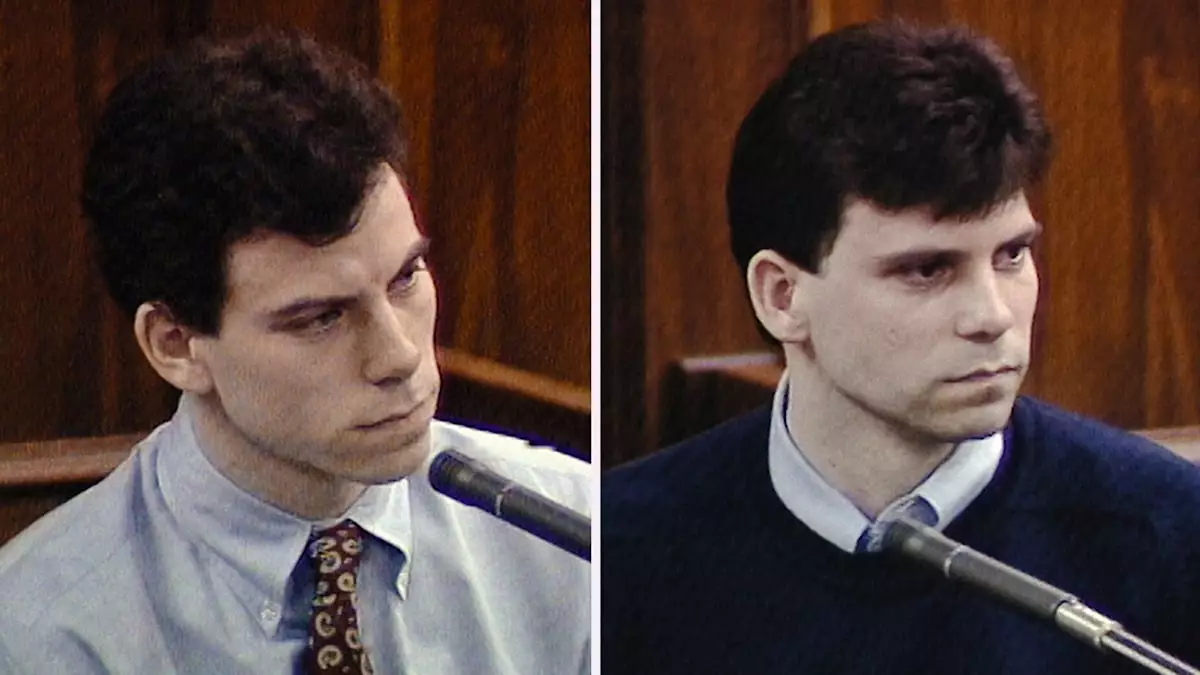The Menendez brothers, Lyle and Erik, have lived in the shadow of a tragic family history for over three decades. Their parents, José and Kitty Menendez, were brutally murdered in 1989, an event that has captivated public interest and sparked intense debate surrounding notions of justice, familial loyalty, and the effects of trauma. Recently, the release of a documentary series on Netflix has reignited interest in their story, leading to renewed calls for a reassessment of the circumstances that led to their life sentences without the possibility of parole.
In the wake of these developments, the brothers’ family members are stepping forward to advocate for their release, asserting the need for justice not only for Lyle and Erik but also for the larger narrative that surrounds abuse and the psychological impact it can have on individuals.
During a press conference held in Los Angeles on October 16, key figures from the Menendez family—including about 20 relatives—gathered to voice their support for the brothers. Mark Geragos, their attorney, unveiled a new habeas corpus claim—a legal request that seeks to evaluate whether their imprisonment is lawful under contemporary understanding of psychological trauma. This claim hinges on two new pieces of evidence, which argue against the narrative that framed Lyle and Erik solely as cold-blooded killers without considering their own experiences of victimization and abuse.
Among the speakers was Ana María Beralt, José Menendez’s niece, who bravely articulated the family’s evolving understanding of the case. By pointing out the enduring suffering of both the victims of the tragedy and the brothers themselves, she invoked a long-overdue dialogue regarding mental health and justice. Her poignant acknowledgment that Lyle and Erik were also victims of a flawed system underscores the heightened awareness we now possess about trauma and its ramifications.
Ana María’s statements highlighted a growing consensus that the justice system’s approach to cases involving abuse—especially those linked to familial dynamics—requires reevaluation. She emphasized that if Lyle and Erik’s case were to be judged under present-day standards, which advocate for a more nuanced understanding of trauma and domestic abuse, the outcome might have been significantly different. This assertion raises broader questions about the legal constructs surrounding victimhood and how society responds to individuals shaped by traumatic experiences.
In her heartfelt plea, Ana María illustrated the brothers’ attempts to transform their lives behind bars. Despite the life sentences they received, they have worked diligently to better themselves, striving to become inspirations for other survivors of domestic abuse and trauma. Their journey, marked by resilience and growth, further complicates the narrative surrounding their incarceration.
The recent press conference not only brought Lyle and Erik’s plight to the forefront but also signaled a united front among the broader family. This public display of solidarity illustrates a profound shift, where old grievances are being set aside in pursuit of a new justice narrative. The statements of Ana María and her mother, Terry Beralt, poignantly reflect this evolution. By sharing that they, too, have suffered from the repercussions of that fateful day, they underscore the notion that compassion and understanding can pave the way for healing.
Moreover, their plea to the district attorney’s office highlights a renewed understanding of the brothers’ situation as a call for empathy rather than a mere legal maneuver. With endorsements from law enforcement supervisors who have recognized the growth of the brothers, their case embodies a microcosm of larger societal issues surrounding the criminal justice system, rehabilitation, and family dynamics.
As discussions regarding Lyle and Erik Menendez’s case gain momentum, we stand at a crossroads of opportunity that transcends their individual narrative. It advocates for a justice system that is capable of recognizing the complexities of human experience—the traumas, the relationships, and the paths to redemption. The Menendez families’ collective voice serves as a beacon of hope, a reminder that even after years of suffering and division, the quest for understanding can lead to compassion, healing, and potentially, a second chance at life for those who have known suffering.
In reclaiming their story, the Menendez brothers may not only alter their own destinies but also contribute to a broader understanding of the need to reexamine the intersection of trauma and justice in modern society.

